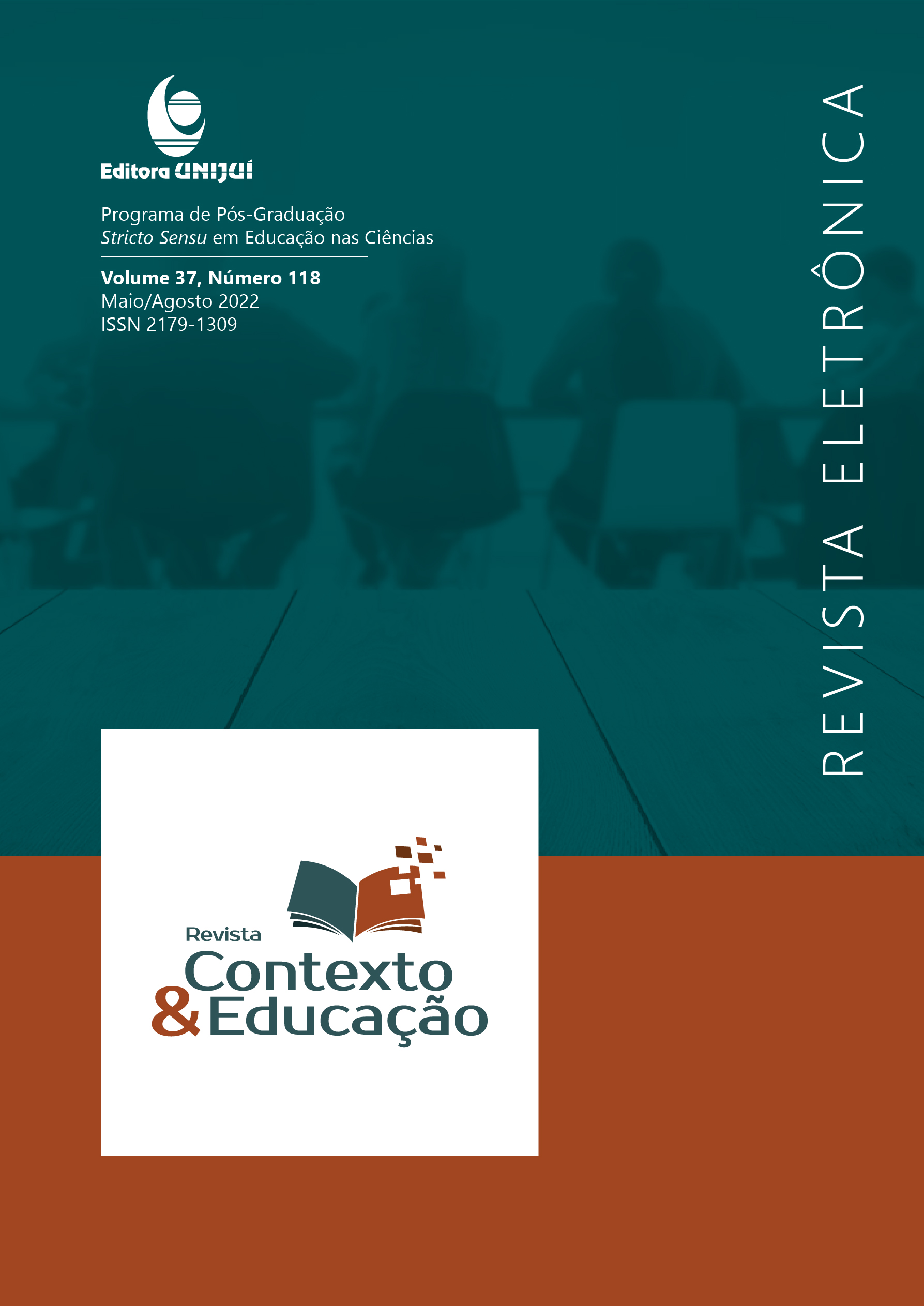O Ensinar fazer ou o Ensinar Pensar para a Construção da Autonomia: Um Diálogo entre Paulo Freire e Edgar Morin
DOI:
https://doi.org/10.21527/2179-1309.2022.118.12153Resumo
Este artigo tem como objetivo analisar a origem e as especificidades do debate entre o ensinar pensar ou o ensinar fazer da escola a partir de um estudo realizado utilizando-se de fontes teóricas e bibliográficas dos caminhos epistemológicos da construção dos preceitos do ensinar fazer e do ensinar pensar. Metodologicamente a construção da análise deste artigo segue três caminhos sequenciados, analisar a formação histórica do sentido dado ao ensinar fazer como sinônimo de racionalidade; a crítica a este preceito e o desafio de ensinar pensar para a construção da autonomia, estabelecendo um diálogo teórico com Edgar Morin (2019; 1973; 1996; 2003) e Paulo Freire (9997; 1995; 1990). Conclui-se que este debate do papel da escola não se origina dentro dela própria, mas no âmbito social e político a partir de uma construção histórica envolvendo o processo da origem epistemológica da racionalidade moderna. A escola tem o compromisso social, historicamente construído, de ensinar o ser racional associado às raízes da modernidade e das relações capitalistas de produção. Assim, o saber que a escola utiliza como meio e como fim por si só está associado à sua utilidade prática, o que dificulta a prática docente do ensinar para pensar.
Downloads
Publicado
Como Citar
Edição
Seção
Licença
Ao publicar na Revista Contexto & Educação, os autores concordam com os seguintes termos:
Os trabalhos seguem a licença Creative Commons Atribuição 4.0 Internacional (CC BY 4.0), que permite:
Compartilhar — copiar e redistribuir o material em qualquer meio ou formato;
Adaptar — remixar, transformar e criar a partir do material para qualquer fim, inclusive comercial.
Essas permissões são irrevogáveis, desde que respeitados os seguintes termos:
Atribuição — os autores devem ser devidamente creditados, com link para a licença e indicação de eventuais alterações realizadas.
Sem restrições adicionais — não podem ser aplicadas condições legais ou tecnológicas que restrinjam o uso permitido pela licença.
Avisos:
A licença não se aplica a elementos em domínio público ou cobertos por exceções legais.
A licença não garante todos os direitos necessários para usos específicos (ex.: direitos de imagem, privacidade ou morais).
A revista não se responsabiliza pelas opiniões expressas nos artigos, que são de exclusiva responsabilidade dos autores. O Editor, com o apoio do Comitê Editorial, reserva-se o direito de sugerir ou solicitar modificações quando necessário.
Somente serão aceitos artigos científicos originais, com resultados de pesquisas de interesse que não tenham sido publicados nem submetidos simultaneamente a outro periódico com o mesmo objetivo.
A menção a marcas comerciais ou produtos específicos destina-se apenas à identificação, sem qualquer vínculo promocional por parte dos autores ou da revista.
Contrato de Licença (para artigos publicados a partir de outubro/2025): Os autores mantém os direitos autorais sobre seu artigo, e concedem a Revista Contexto & Educação o direito de primeira publicação.


